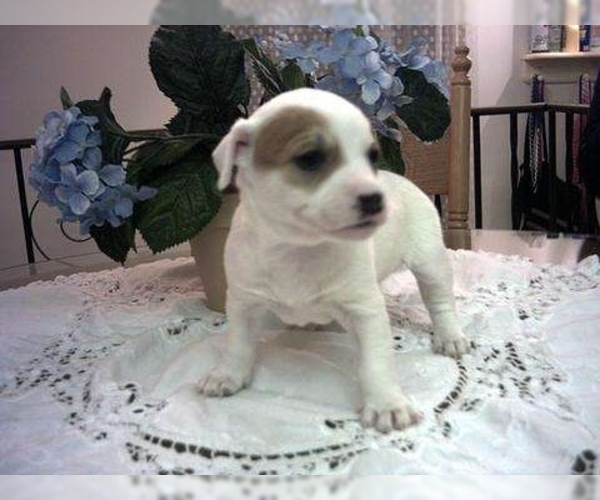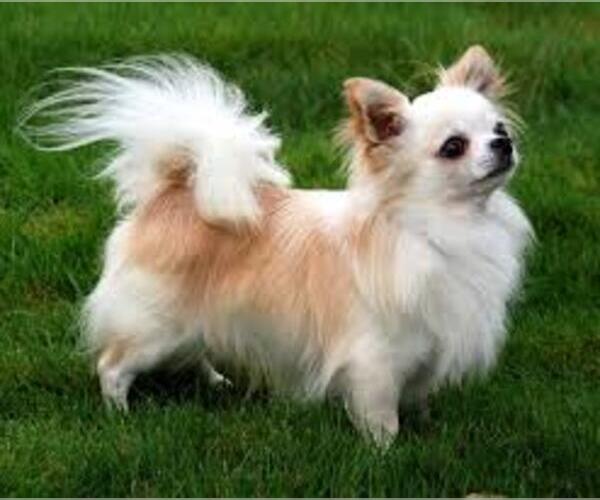
JUICY - CHIHUAHUA / JACK RUSSELL TERRIER / MIXED DOG FOR ADOPTION
Jack Chi Dogs For Adoption in Royal Palm Beach, FL, USA
For Adoption
-
Nickname:
Juicy
-
Breed
-
Gender
Female
-
Age
Adult
-
Location
Royal Palm Beach, FL, 33421 USAUSA
Description
Dog Breed: Chihuahua / Jack Russell Terrier / Mixed. hOWA
-
Behavioral Characteristics
OK with Dogs: Yes -
Additional Information
Was the Dog Found No Other - Up-to-date on Vaccinations
Let PuppyFinder Help!
Save Time. Get The Right Match. Buy Puppy Safer.
CREATE A WANTED ADRescue Information
-
Organization name
All For One Pet Rescue, Inc.
-
Location:
Royal Palm Beach, Florida, 33421 USAUSA
Breed overview

Jack Chi
A.K.A.: Jackhuahua, Jackchi, Jack Chi dog, Chi-Jack, Taco Terrier, Chihuahua Jack, J R Chihuahua, Russell Chihuahua, Chee Jack, Jack-Chi, Chi Jack Russell, Terrier Chihuahua, Jack Russell Chihuahua, Jackchi Terrier, Jack Russell Chi, Russell Jack Chi, Russell Chi Terrier, Russell Jackchi, Russell Jackhuahua
More About Jack Chi BreedOverview:
The Jack Chi is a delightful designer breed, a cross between the spirited Chihuahua and the energetic Jack Russell Terrier. Originating from the desire to combine the best traits of both parents, this hybrid typically inherits a compact size, weighing between 8-18 pounds and standing 10-15 inches tall. Their physical appearance varies, often featuring a short, smooth coat in colors like black, white, tan, or a combination, with alert, intelligent eyes. Temperamentally, Jack Chis are known for being playful, intelligent, and loyal companions. They possess the Chihuahua's affectionate nature and the Jack Russell's zest for life, making them engaging pets. While adaptable to apartment living due to their smaller stature, they require regular exercise and mental stimulation to prevent boredom and destructive behaviors. They can be good with families who understand their need for consistent training and socialization, especially with younger children. Notable health considerations for the Jack Chi include potential predispositions to conditions seen in their parent breeds, such as patellar luxation, dental issues, and heart problems, highlighting the importance of responsible breeding and regular veterinary care.
See more...


